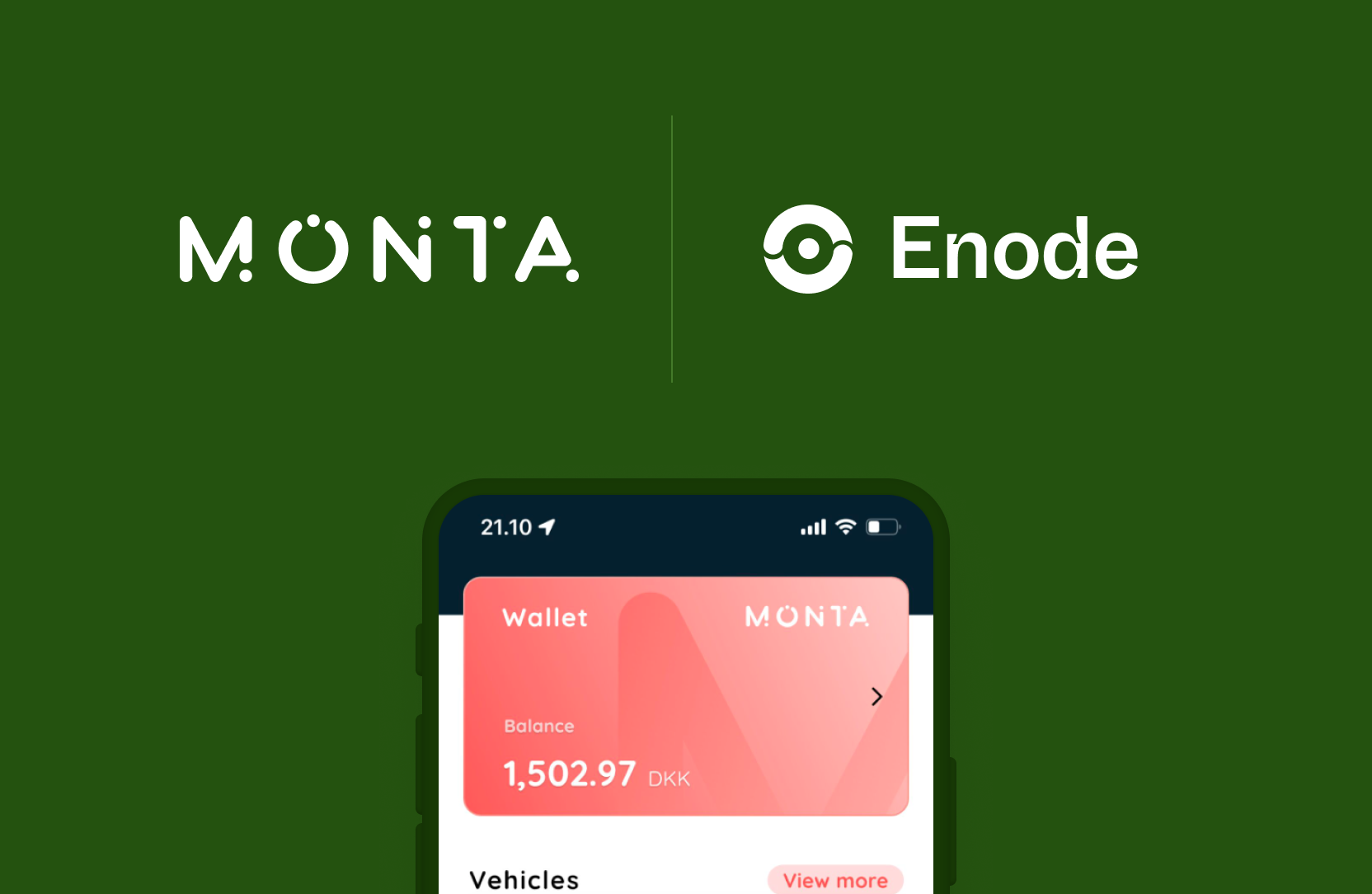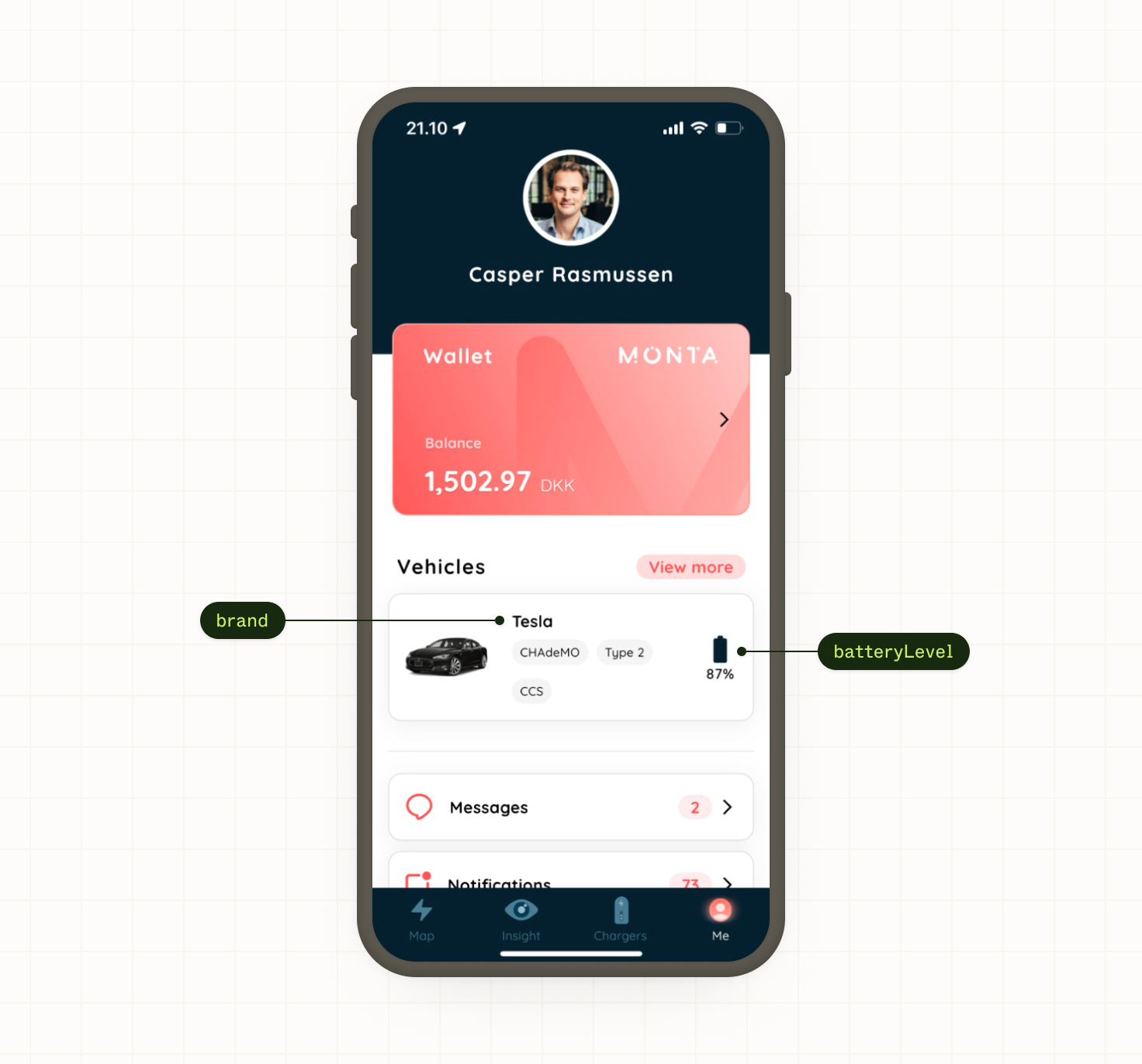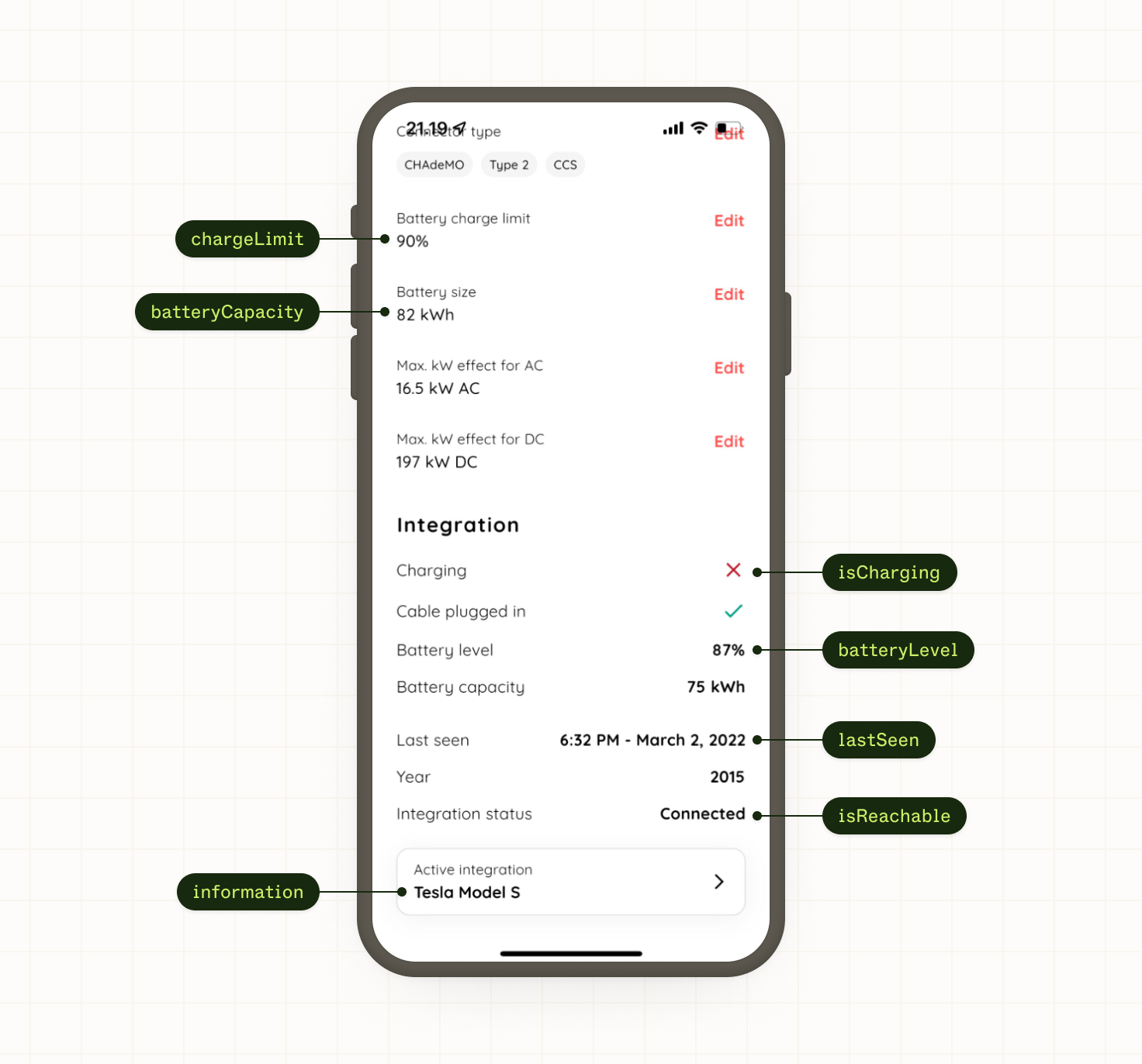Why Monta chose Enode to unlock new use cases and create a more customer-centric EV charging experience

- Website
- monta.com
- Industry
- EV Infrastructure
- Location
- Headquartered in Copenhagen, Denmark
- Money raised
- €50M
Monta is an operating platform that powers the EV ecosystem. They serve drivers, companies, cities, and the electricity grid. Monta provides the best technology solutions for the entire EV charging cycle. At its core, Monta provides access, innovation, and reliability to the mobility transformation. All with a single integrated software built to EV better.
Charging electric vehicles is frictional for consumers
Charging electric vehicles (EVs) when not at home should be simple – but it’s actually a complicated, multi-step process. There are lots of elements to align and several stakeholders involved, from charger manufacturers, to charging partners, to resellers, and drivers themselves.
Streamlining that process is critical to accelerating the uptake of EVs. Today, drivers aren’t able to leverage the full potential of their EVs - at least, not without a lot of effort. It’s hard to find charging points, and to calculate the amount of energy needed to get to them. Once they do find charge points, drivers have to download different manufacturers’ apps to interact with them, and manually input data about their State of Charge (SoC). What’s more, they aren’t able to flex their at-home charging to take advantage of time-of-use pricing, and help balance out the grid.
These are the problems Christian Weinberger, VP Engineering at Monta, is attempting to solve. Monta is building the future of EV charging. It’s a complete EV charging management platform that brings together the many players in the EV space, including manufacturers, service providers, and drivers. Christian’s goal is to make EV charging simple, accessible and reliable for everyone – that’s why he’s adding 3,000 chargers to Monta’s existing network of over 250k chargers across Europe every month.

Integrating with electric vehicles is an engineering challenge
Christian’s team collects a lot of valuable data from its network of charging, but was missing once crucial input: data from the EVs themselves. Christian knew that being able to capture two critical pieces of data – the SoC and EV location – would simplify the user journey for both drivers and charging partners. For drivers, it would mean they could calculate optimal routes and time to charge without having to manually input data. And for charging partners, it would mean they could invite drivers to use their wall boxes with one click, eliminating arduous app set-up.
We’re very tech-driven and pride ourselves on providing cutting-edge features our competitors can’t offer,” explains Christian. “We knew getting this data would unlock new use cases, and make the existing ones easier for users.”
One important new use case was demand-response charging. With SoC data, Monta would be able to improve the customer experience by sending a signal to a charger to stop charging when energy costs rise, or there’s a peak in demand, and start again when prices drop. But collecting that data wouldn’t be easy. “Building that functionality ourselves for 20 or 30 EV brands would be crazy”. Christian knew the scale of the challenge he was up against. He’d worked for another EV company several years earlier, and had reverse-engineered several EV APIs himself. Integrating with each vehicle took between three to six weeks, and came with no guarantee that the integrations wouldn’t eventually break.
For Christian, the choice was clear. It wasn’t a case of deciding whether to build or buy; just of deciding which provider to buy from.
Enode helps Monta get to market faster
Christian looked at the two leading providers on the market - Smartcar and Enode. One thing was critical: speed to market.
Mari, our Chief Customer Officer, set up a dedicated Slack channel with the folks at Monta to provide onboarding support and accelerate the integration. “Instead of taking three to six weeks per brand, Enode built integrations for a range of brands within one week. The fast time to market was super-beneficial,” says Christian.
The simplicity of Enode’s API also helped Christian’s team move more quickly. “The structure of the API is very easy and natural,” Christian explains. “It abstracts away a lot of the complexity we have when talking to manufacturers’ APIs.”

Enode enables Monta to deliver a better customer experience
With the integration to Enode complete, Christian launched a Beta smart charging product to a select 1,000 drivers. More than half of the Beta drivers connected their EV to Monta’s app in the first two weeks, and have remained engaged ever since. On average, Monta customers who have connected their EV open their app more than other users. And they no longer have to manually enter their State of Charge (SoC) – it’s automatically pulled from their EV and updated in real time.
Customers like it. We’re giving drivers access to their own EVs; it’s easier and more efficient for them. They no longer have to input the SoC – we can now estimate what needs to be charged, apply our charging algorithm, and do it more optimally.
Enode gives Monta access to up-to-date, normalized EV data from every vehicle manufacturer. With more data, comes more opportunities to build useful features and interesting new use cases. EV owners are now alerted via the Monta app if their charging cord is not properly plugged in, for instance, so they no longer have to deal with unexpectedly uncharged cars. “Enode helps us troubleshoot. It reduces incidents, and support time, and increases usability of the app,” explains Christian.
There are more new products and services on the horizon. With this new breadth of data, Christian is planning to introduce new products and services, including fleet management, and balancing spikes to the grid through vehicle-to-grid (V2G).
